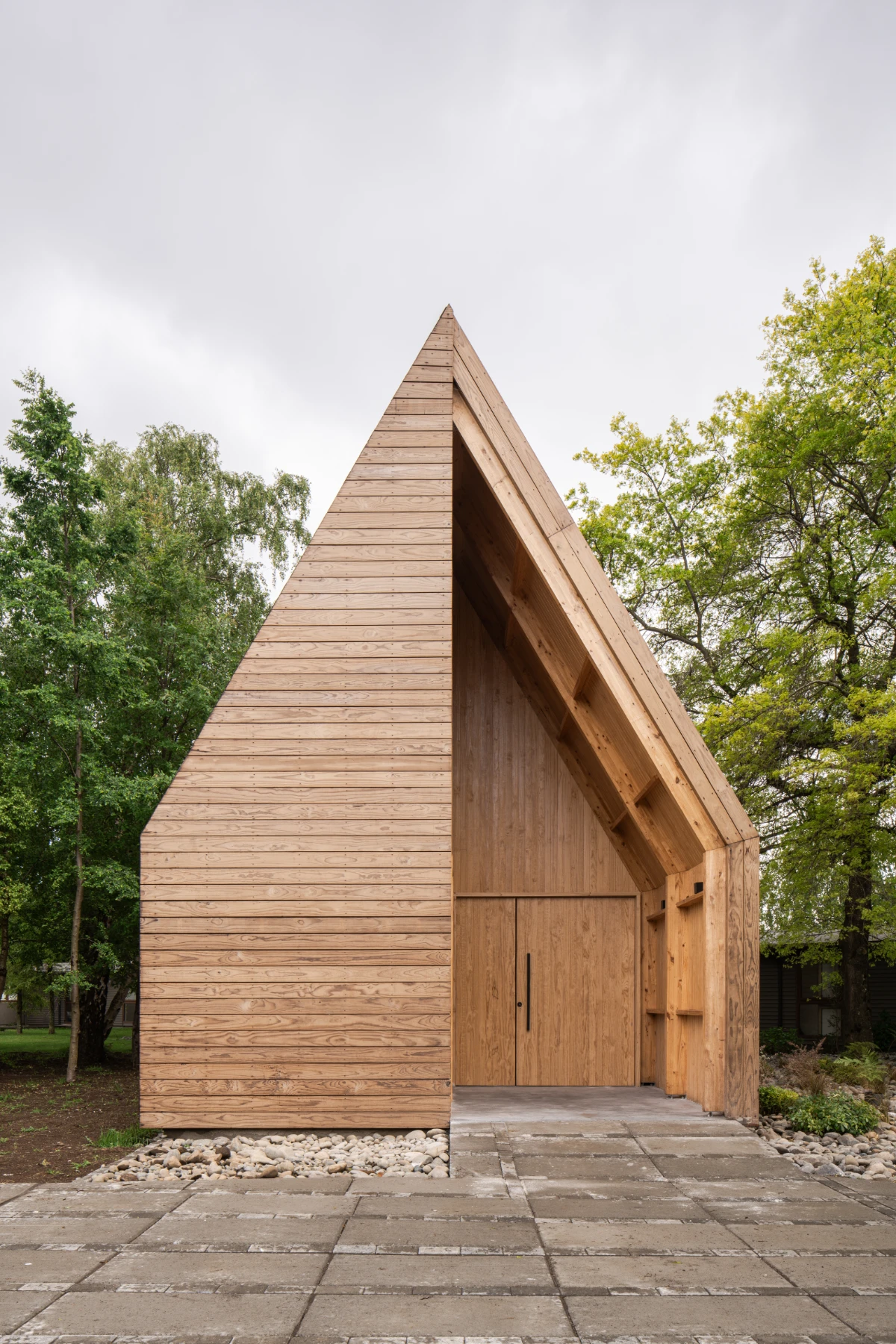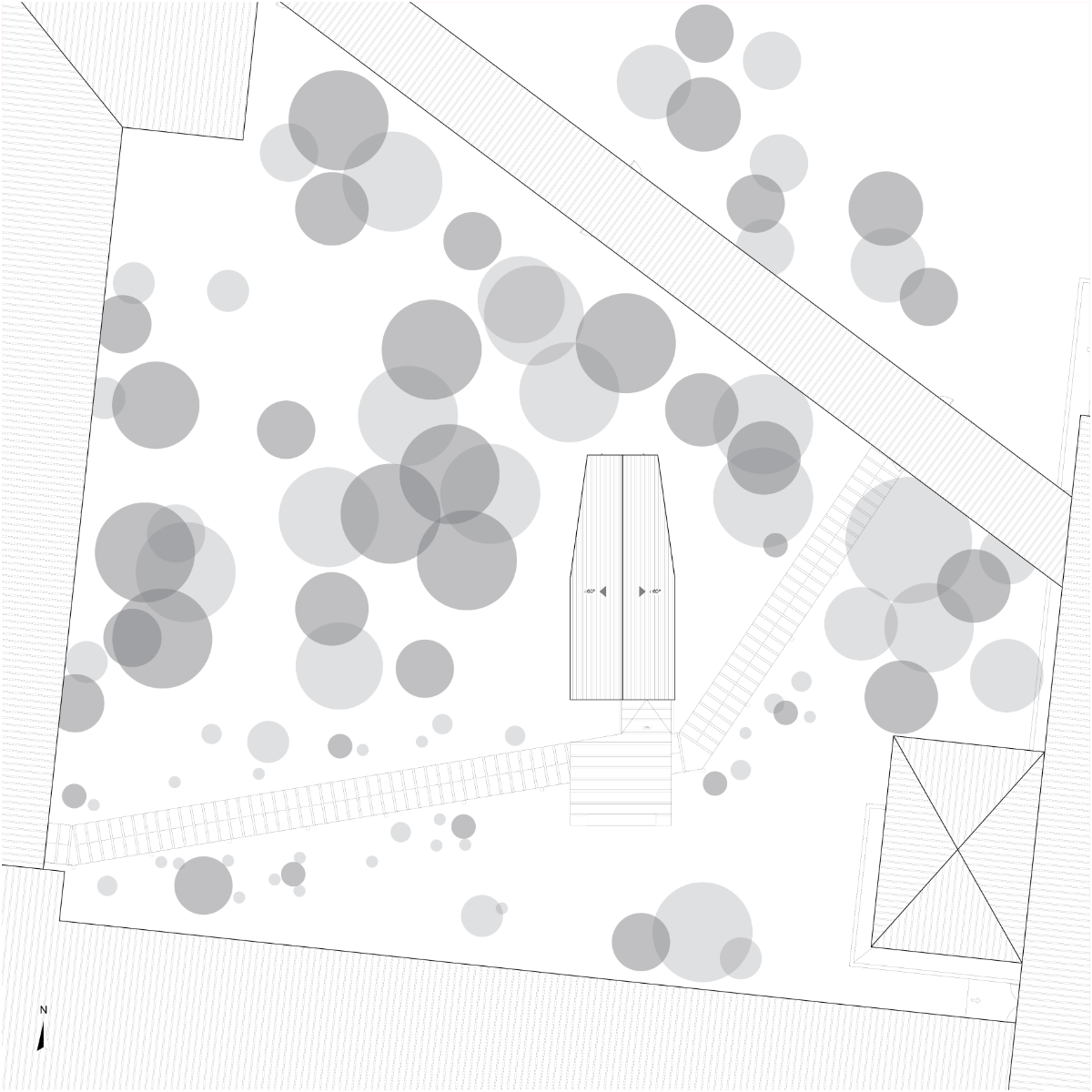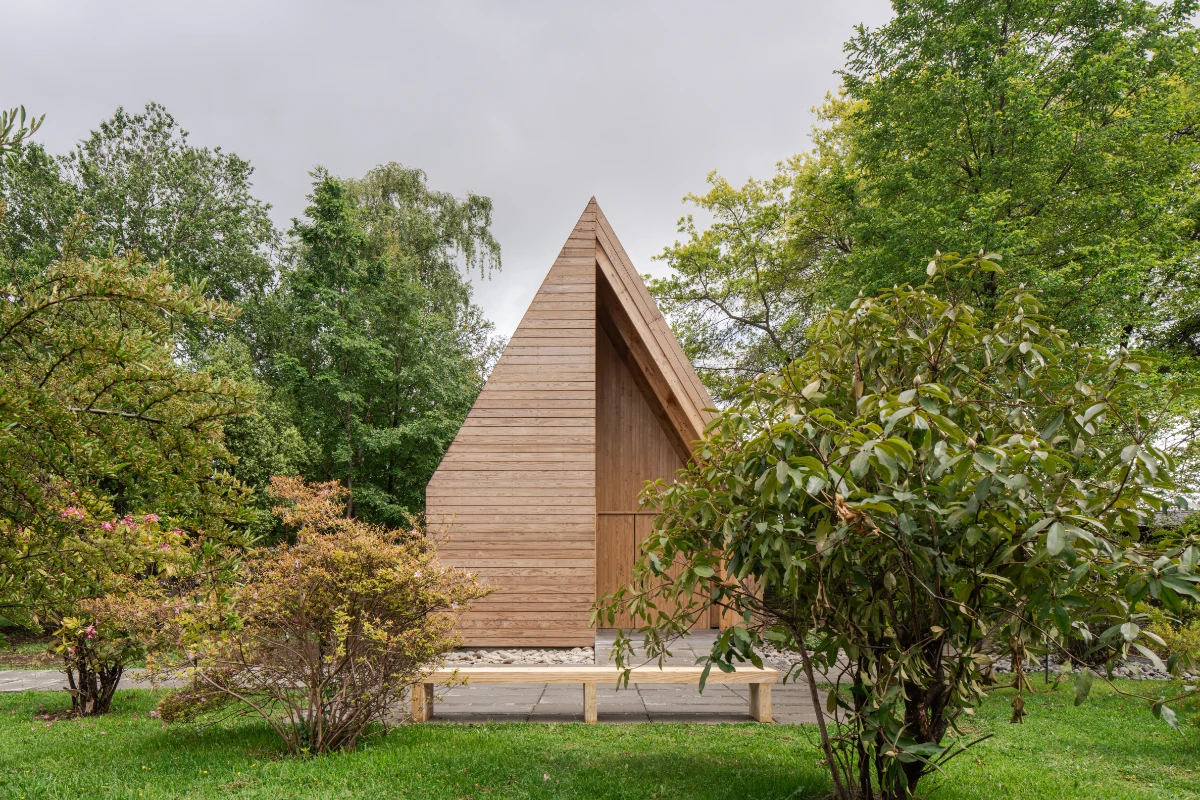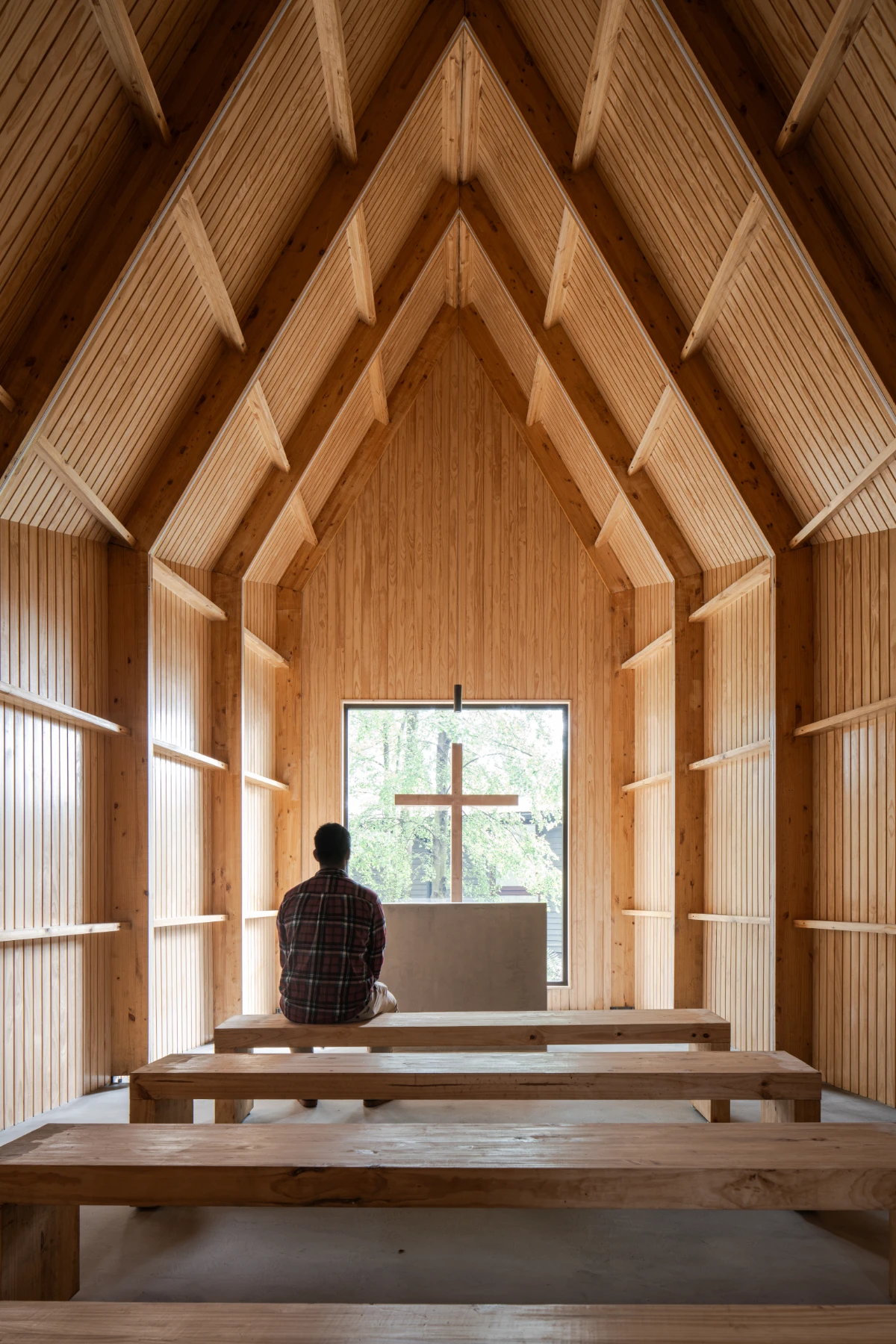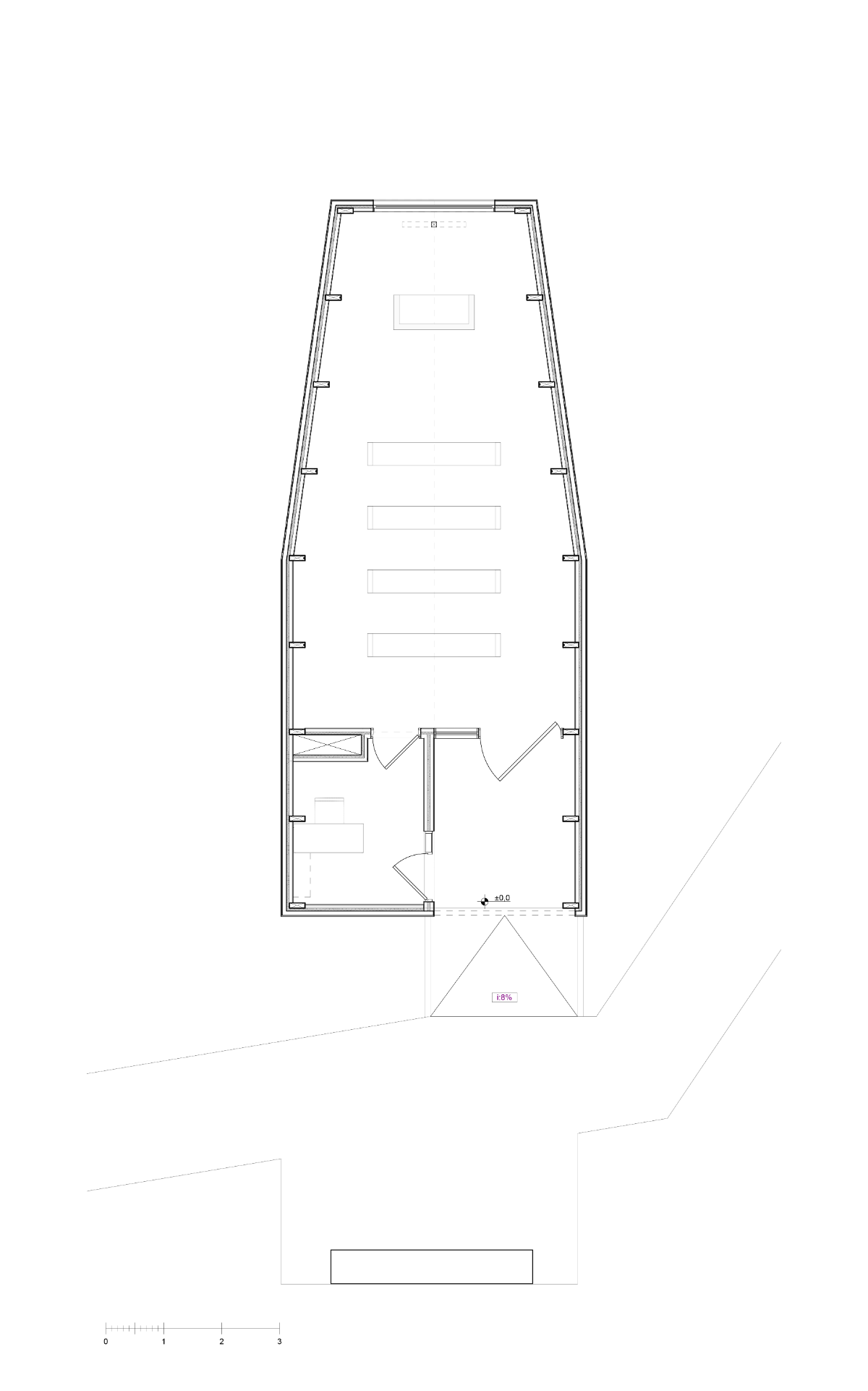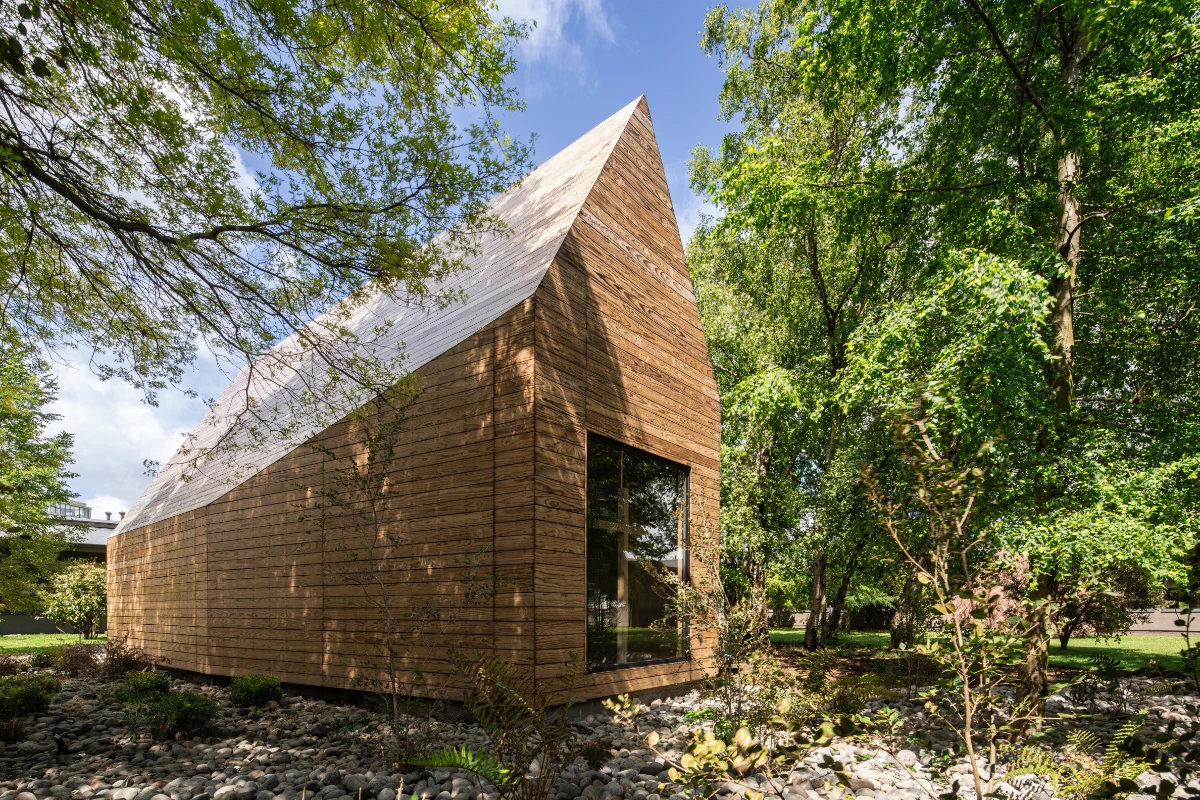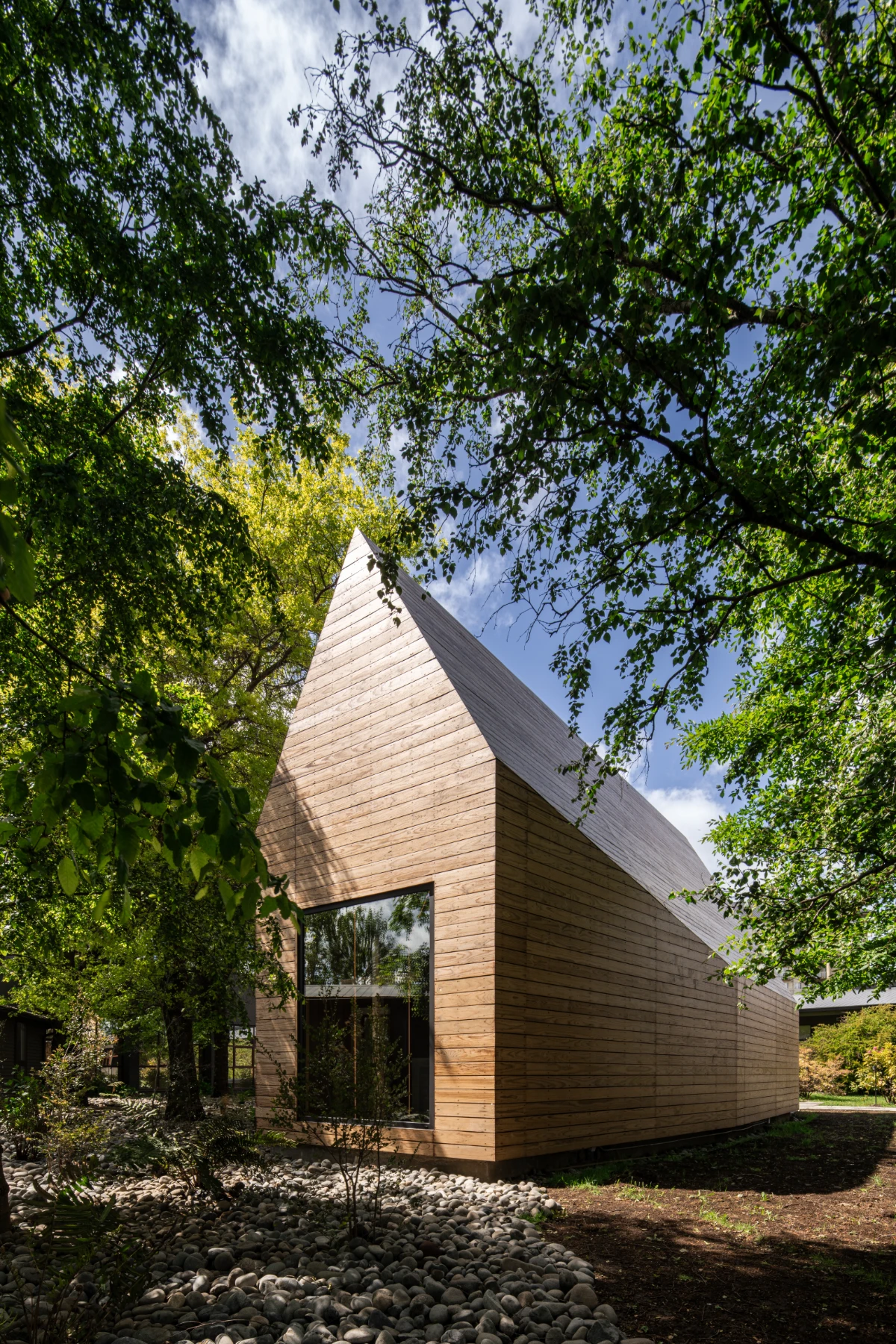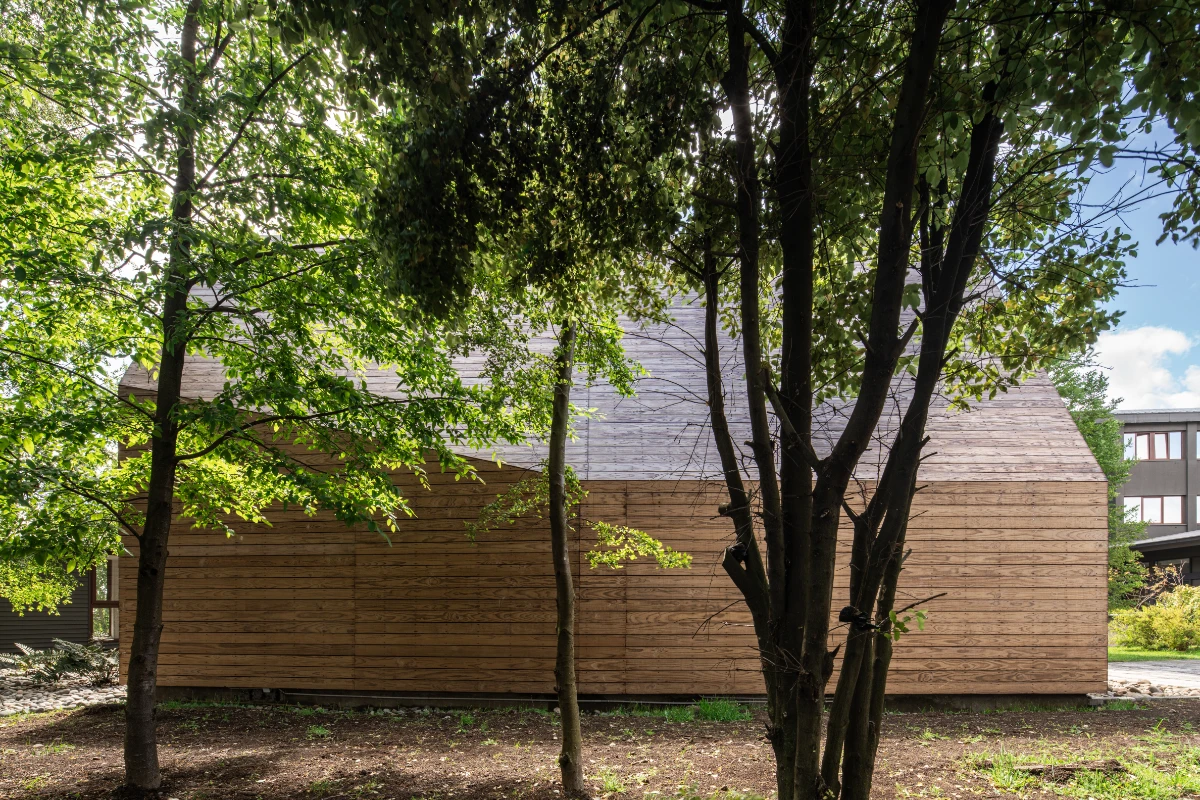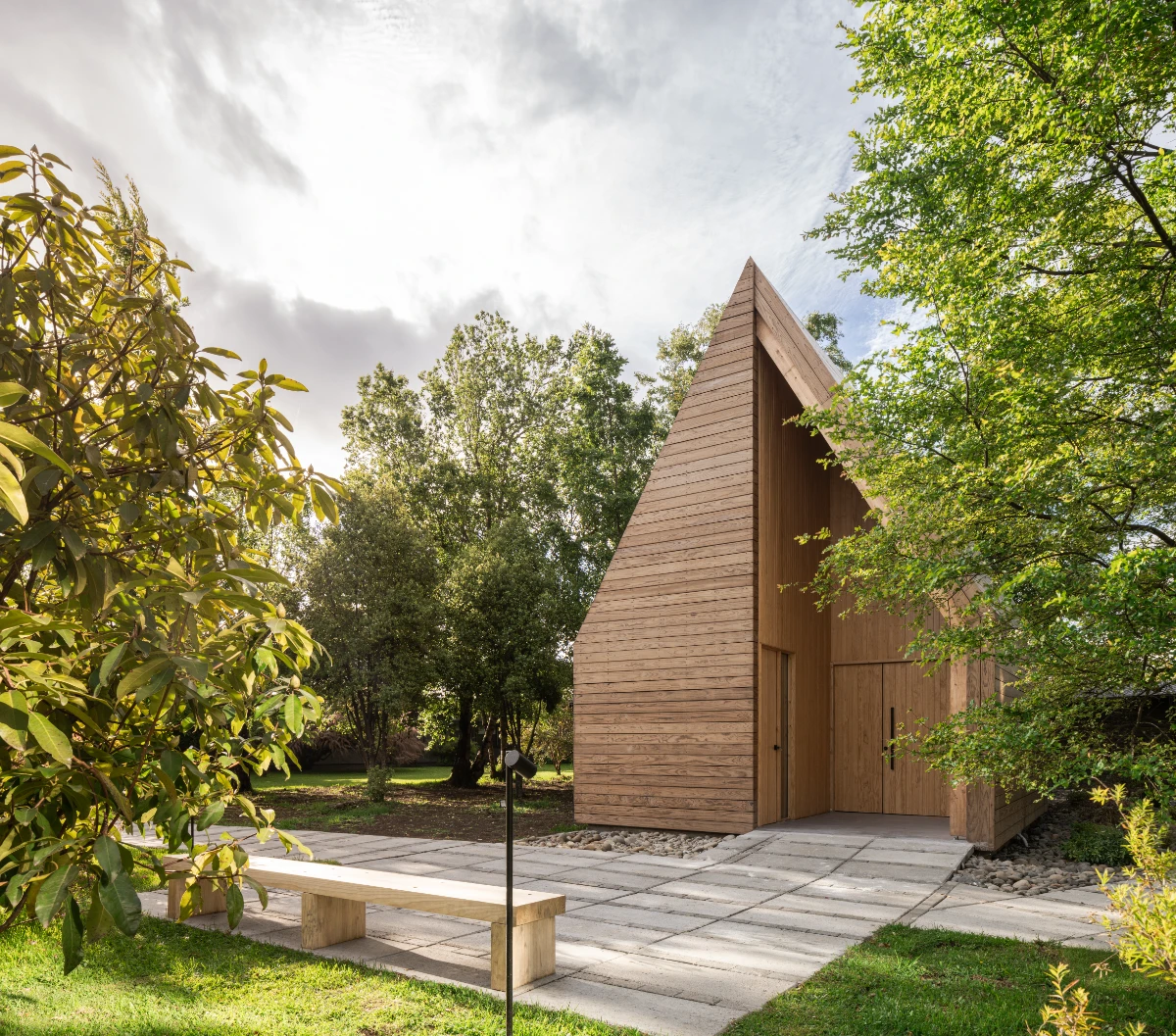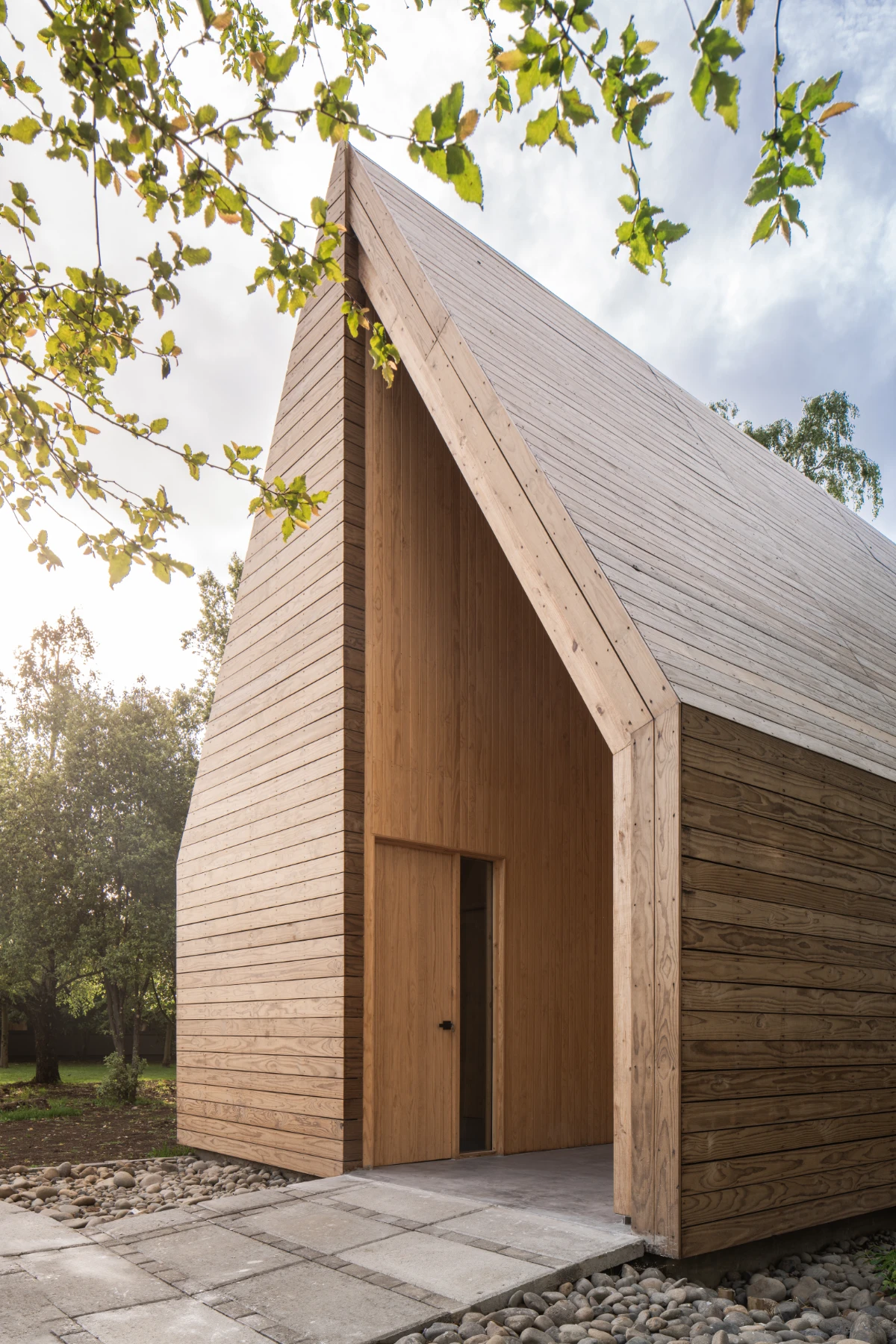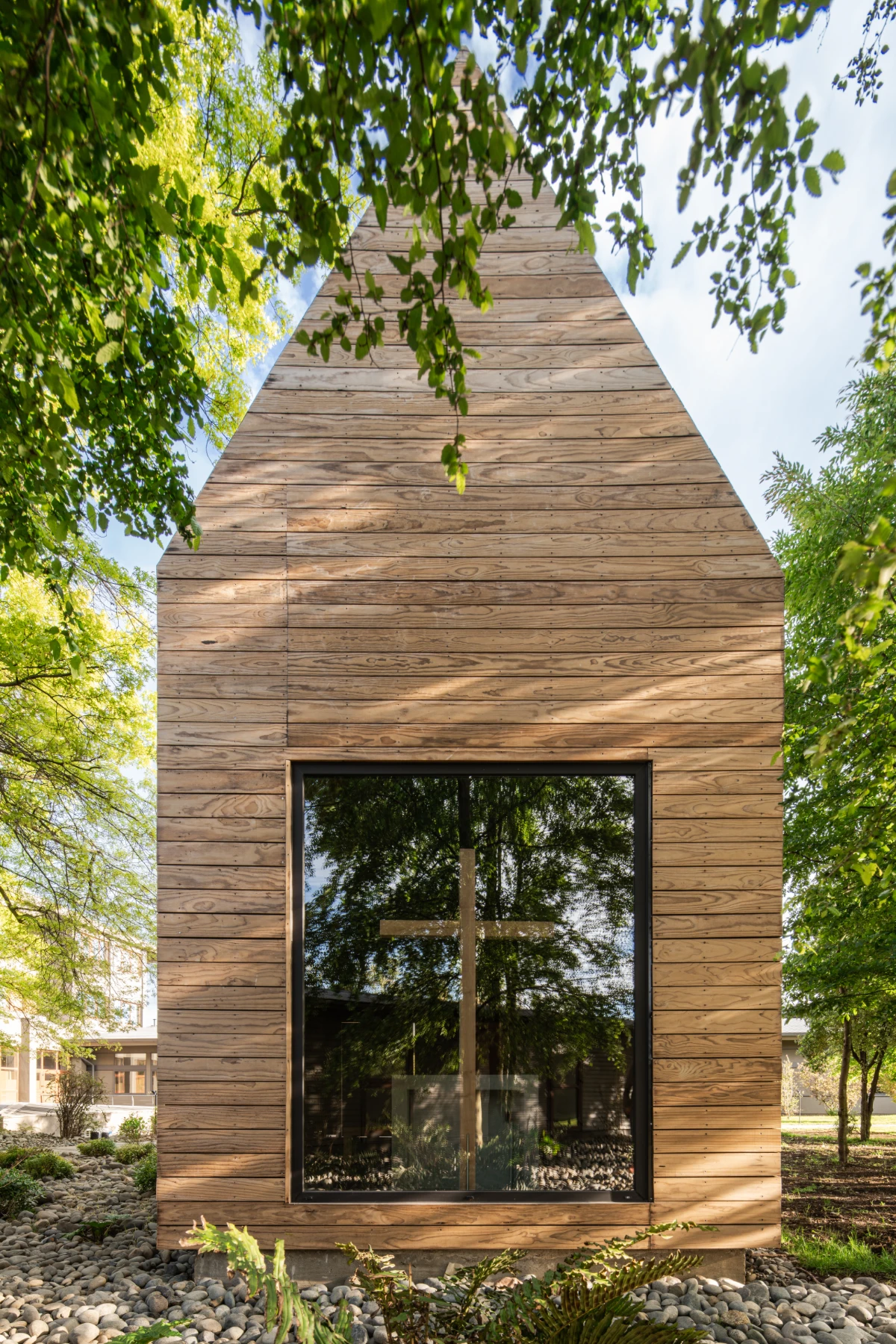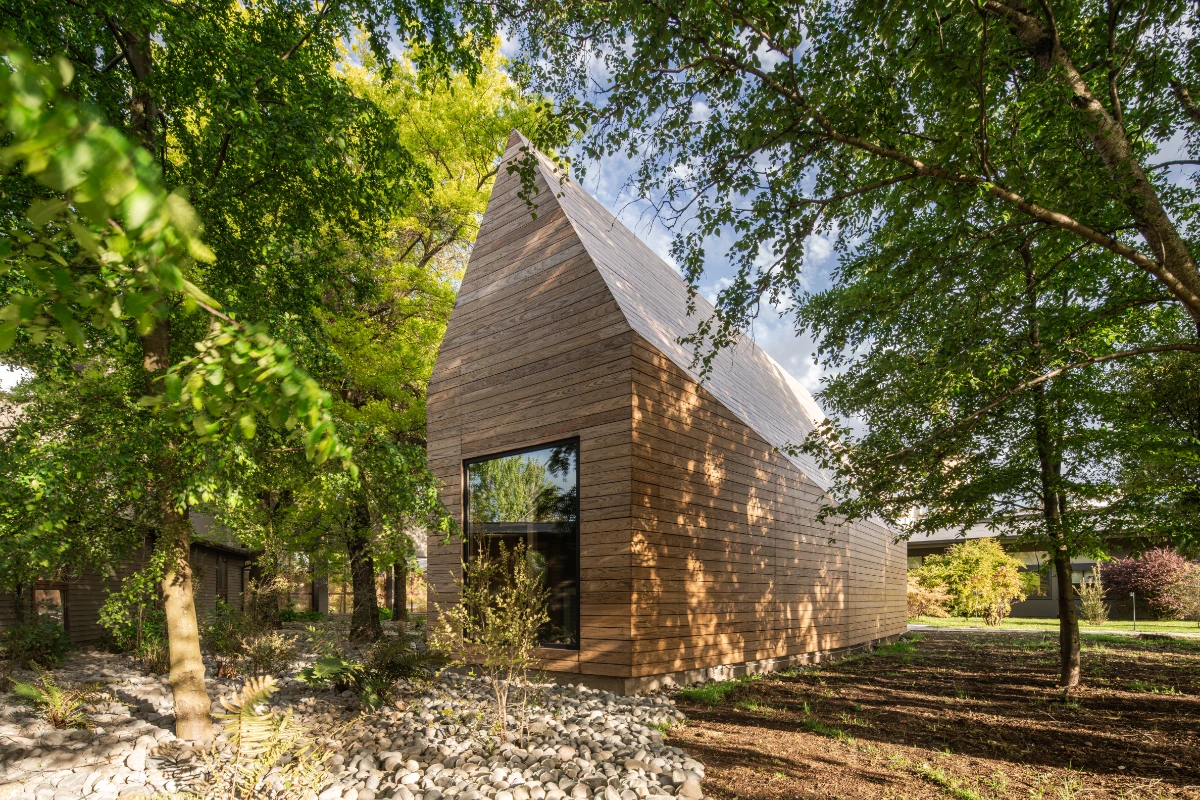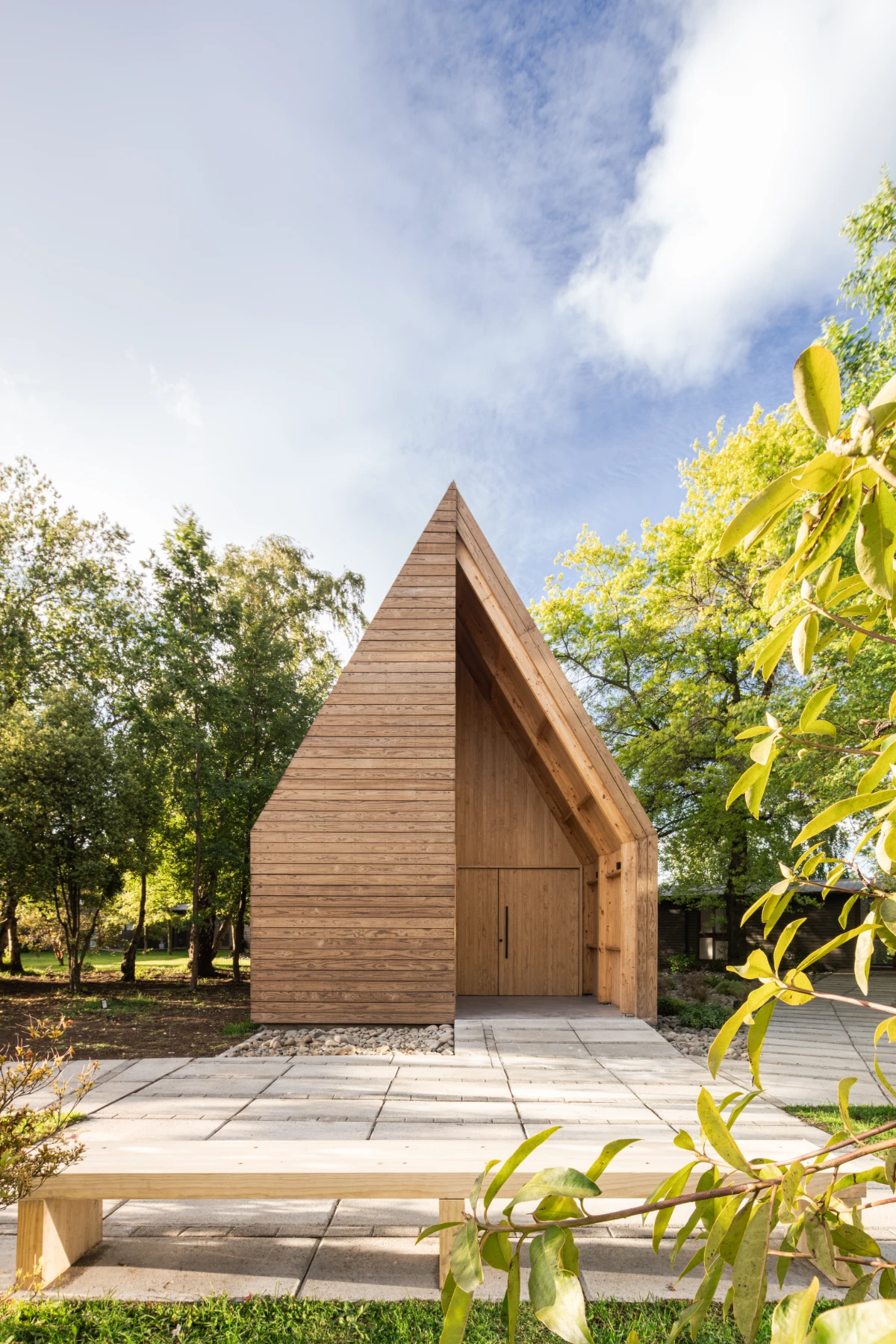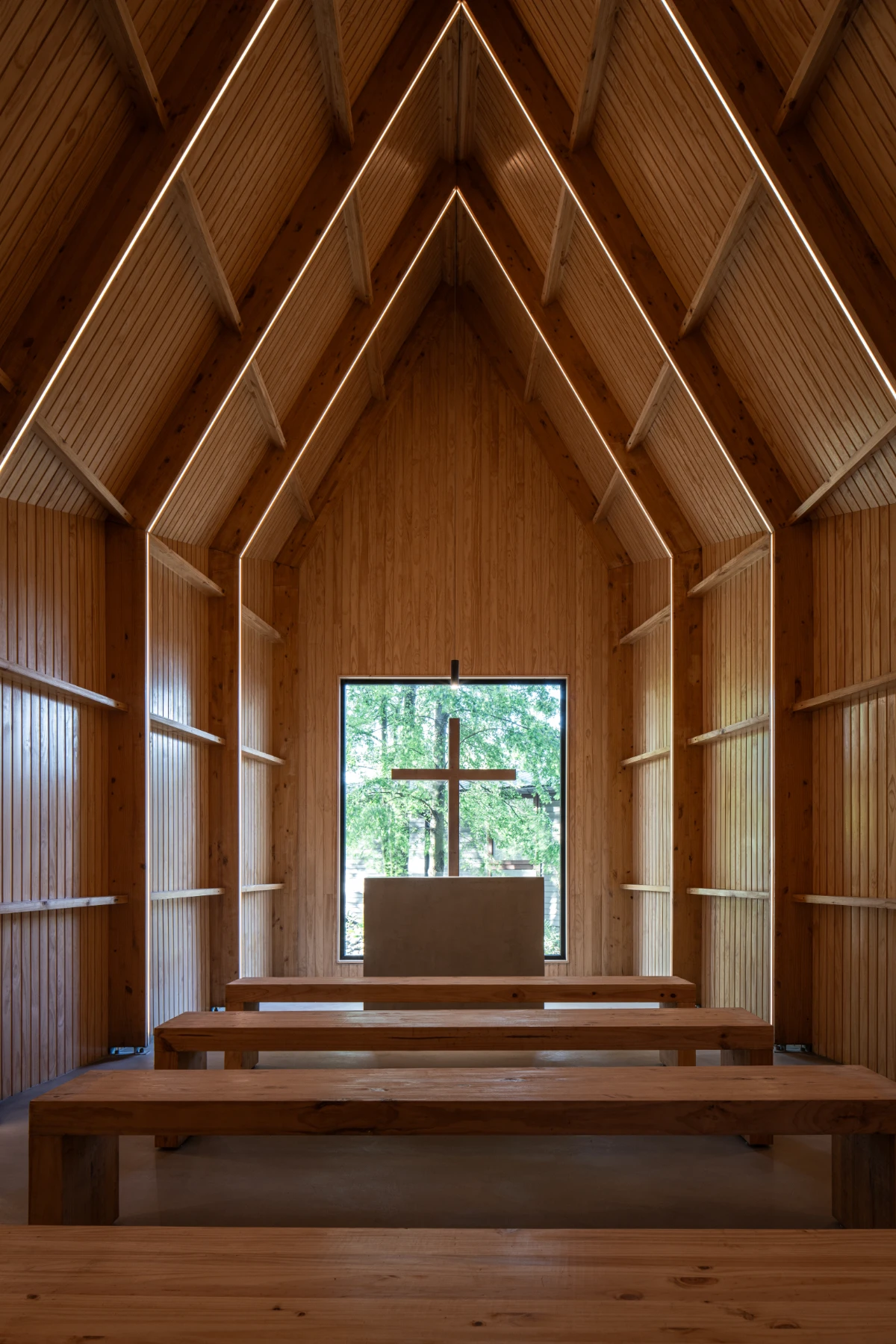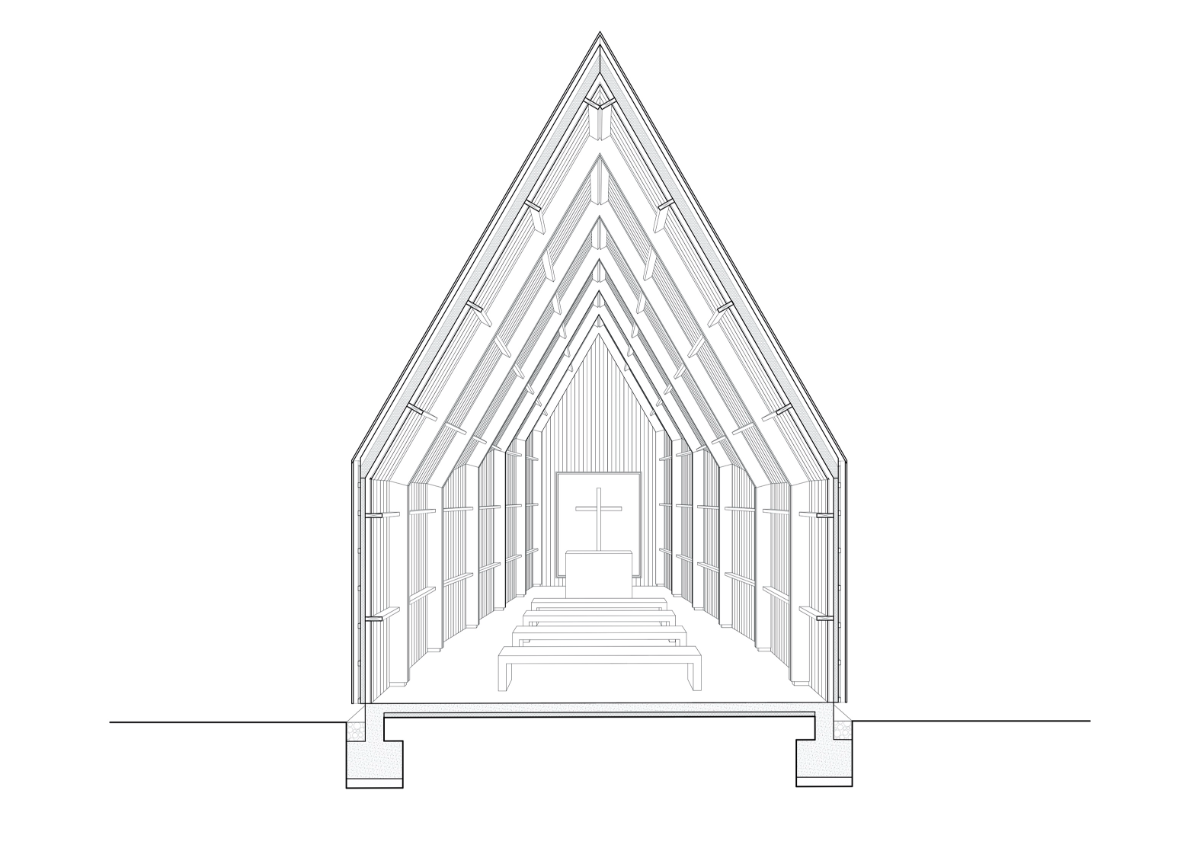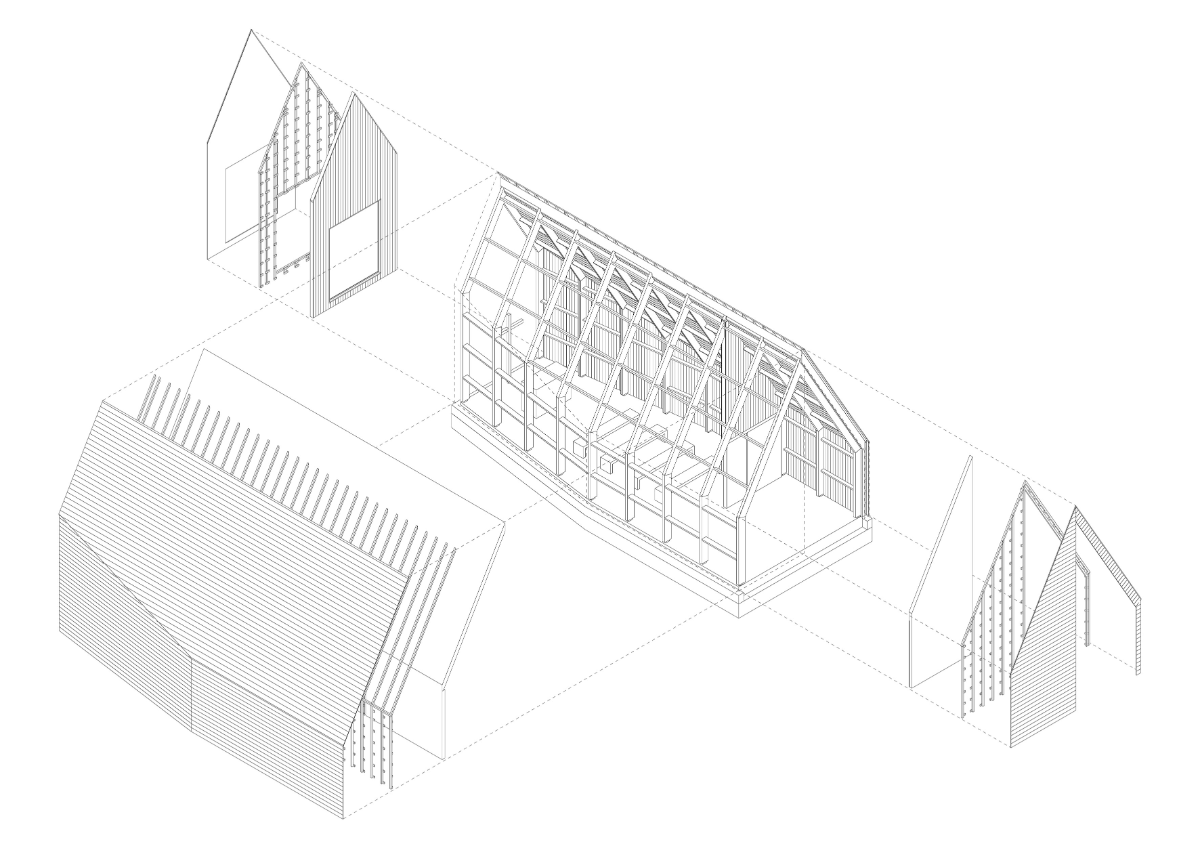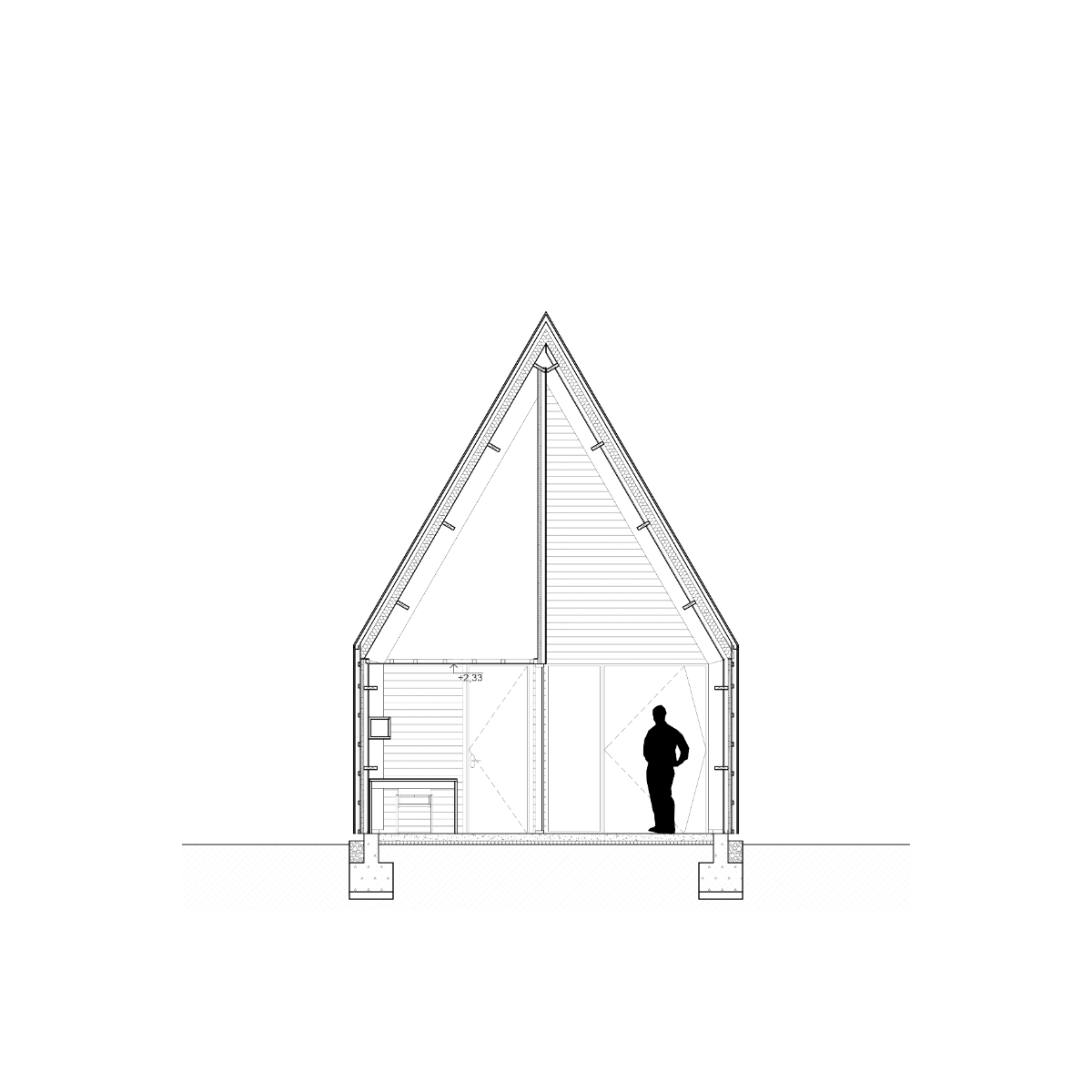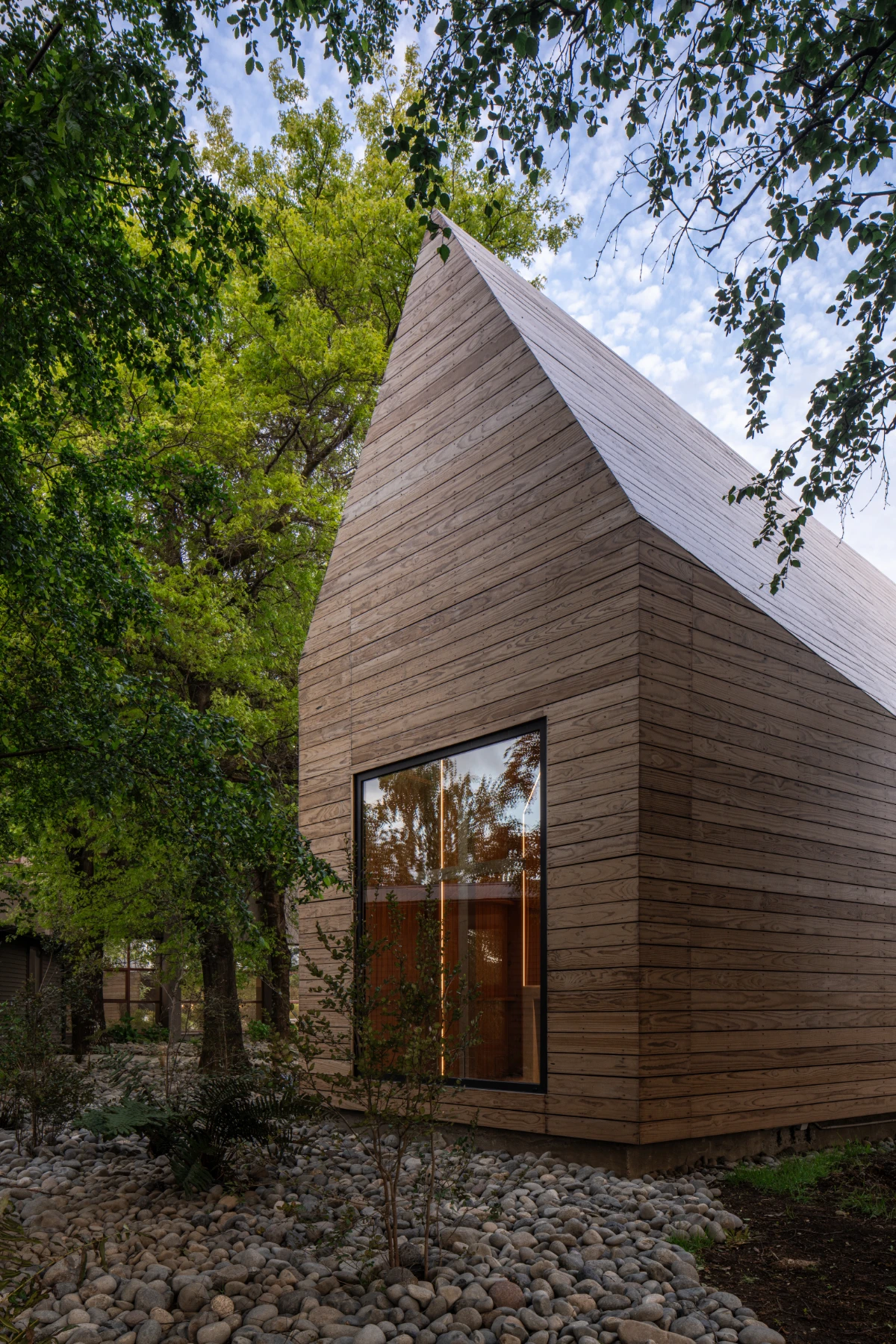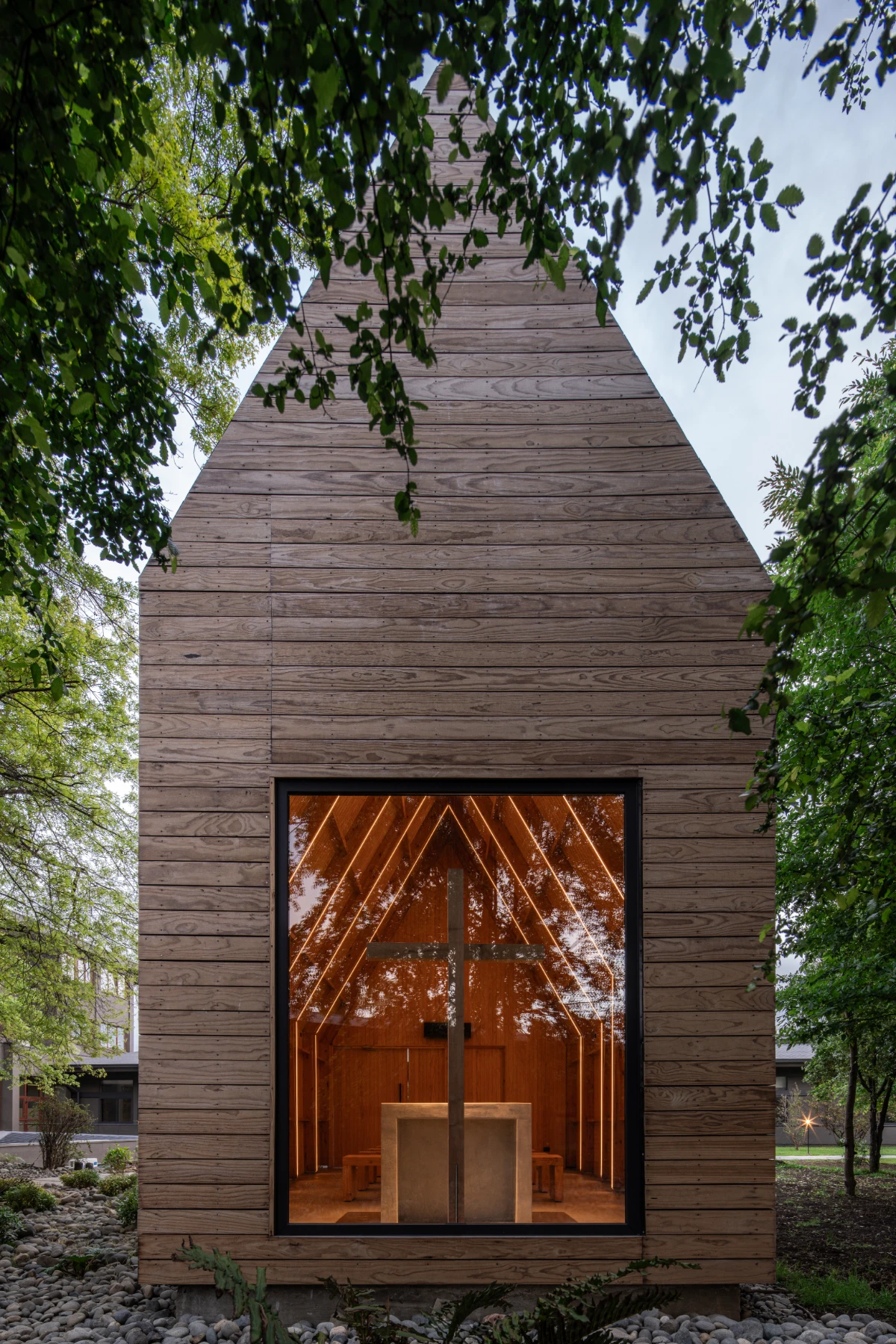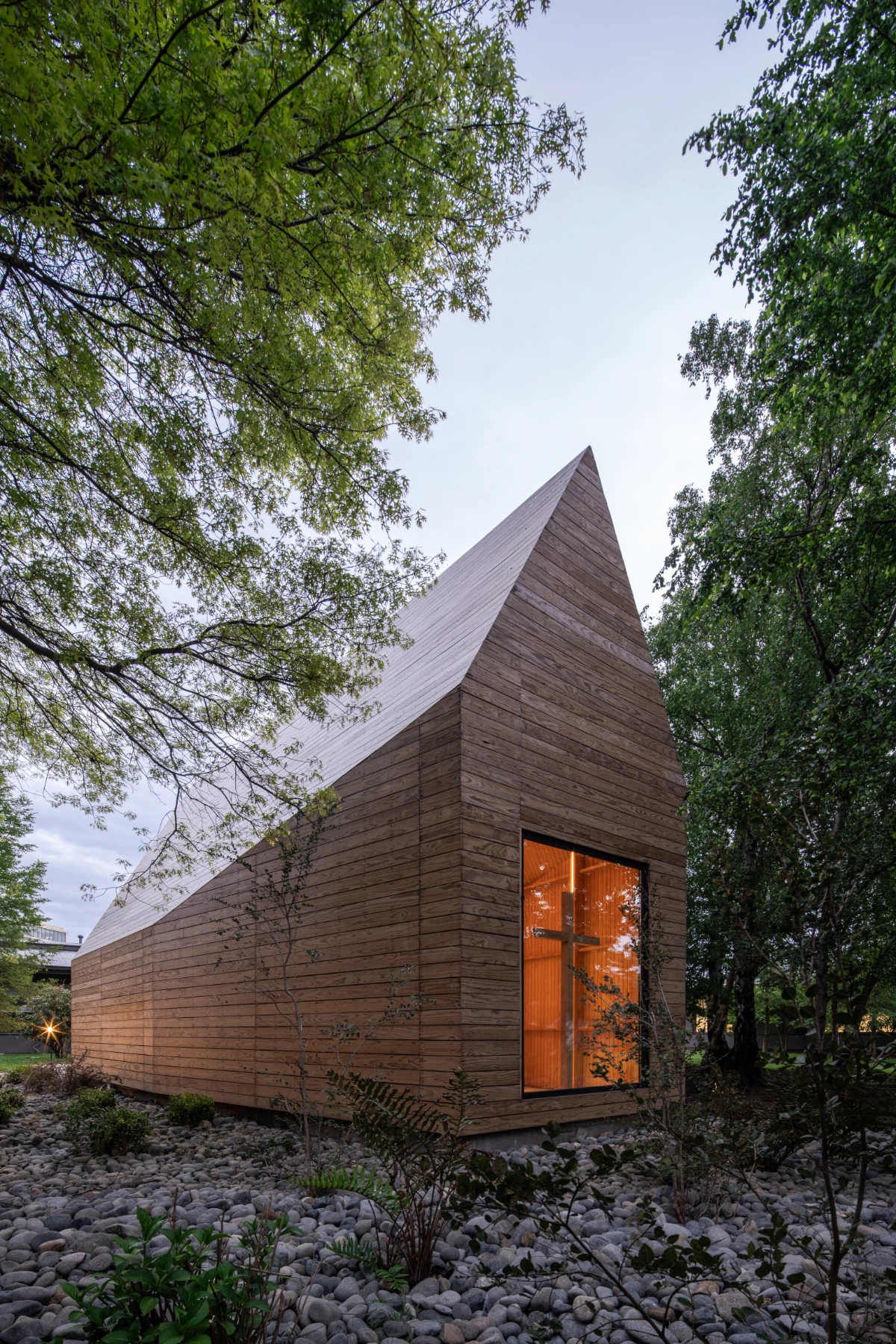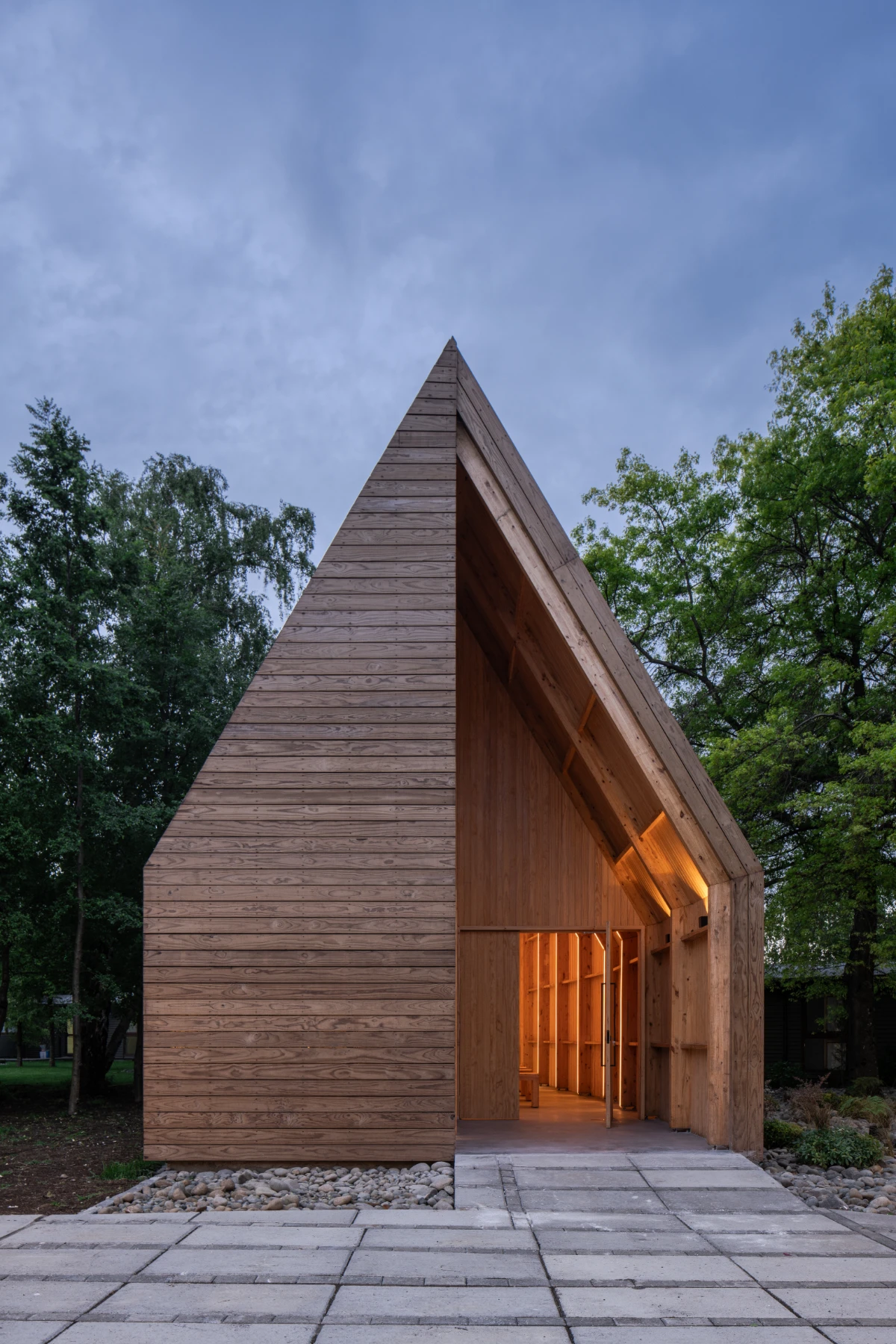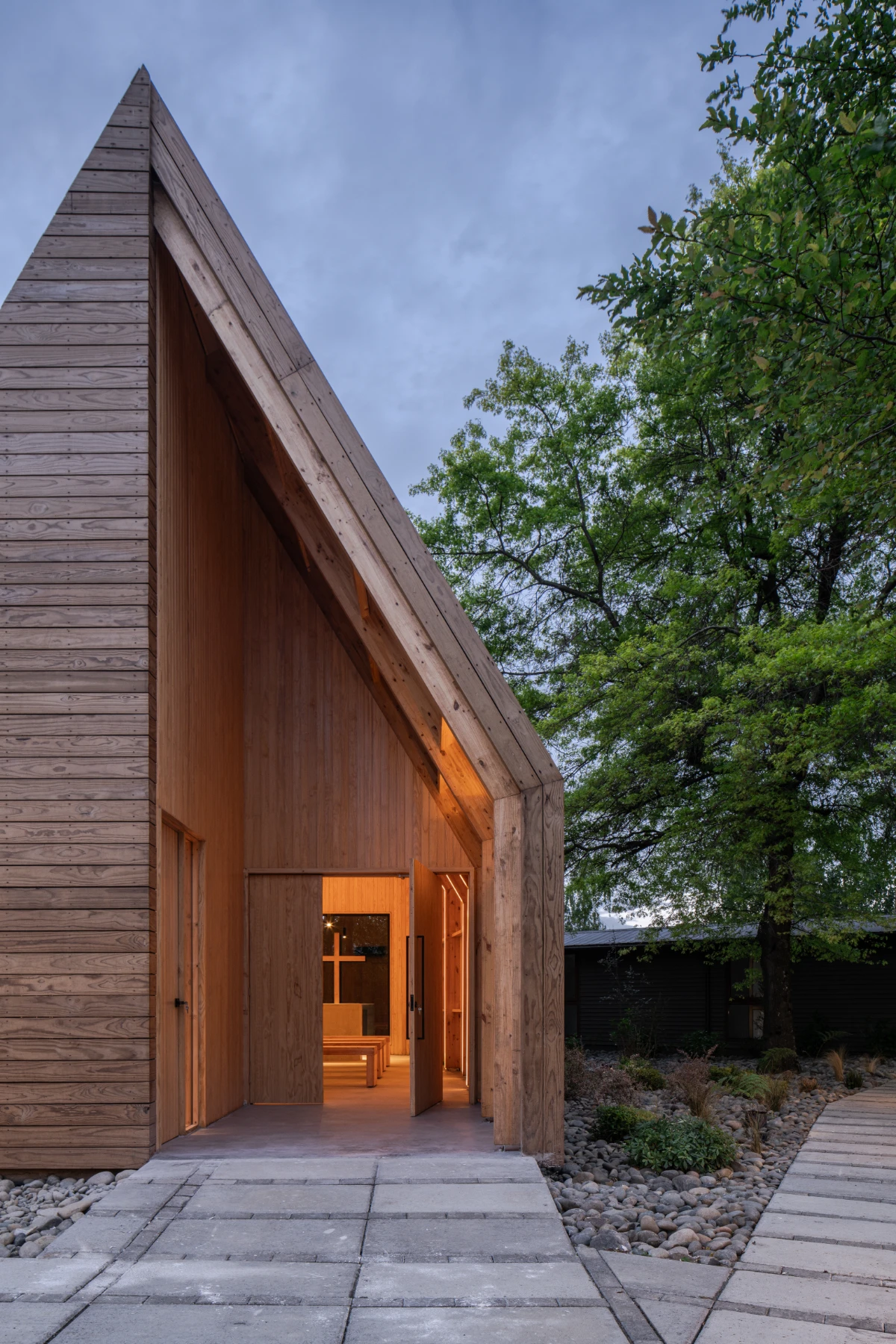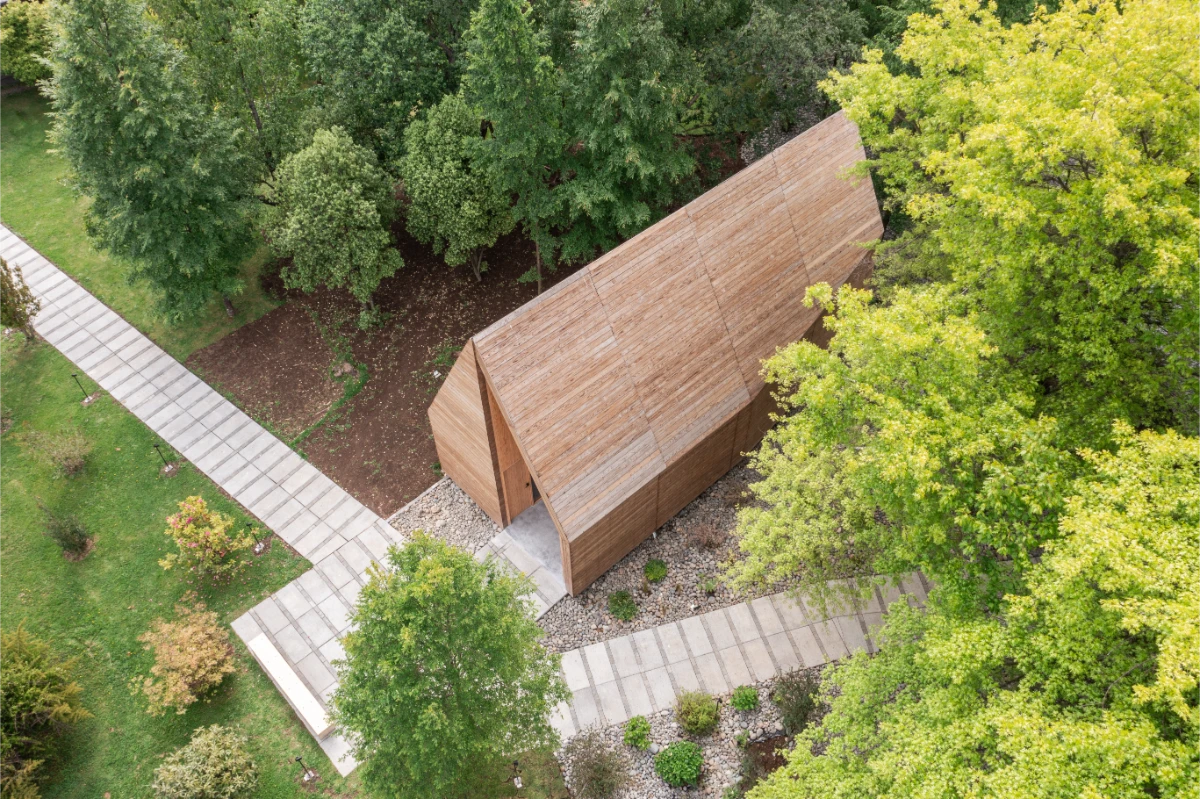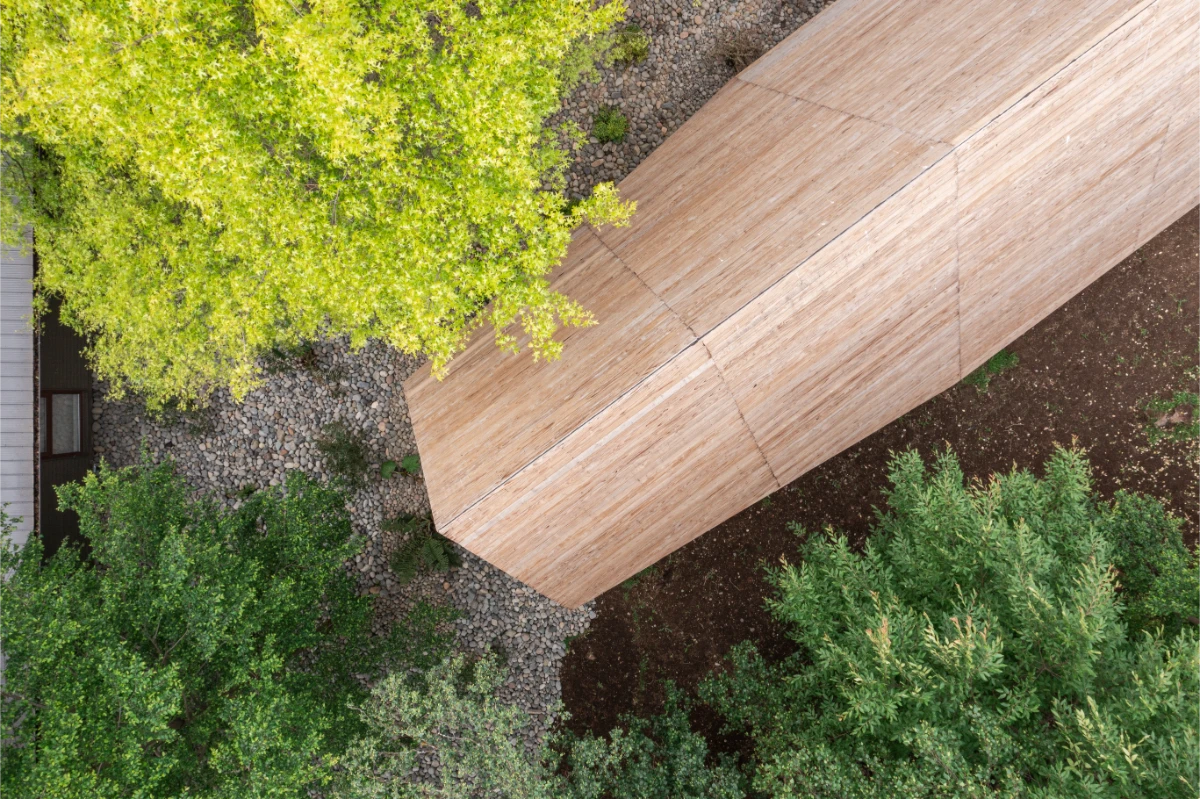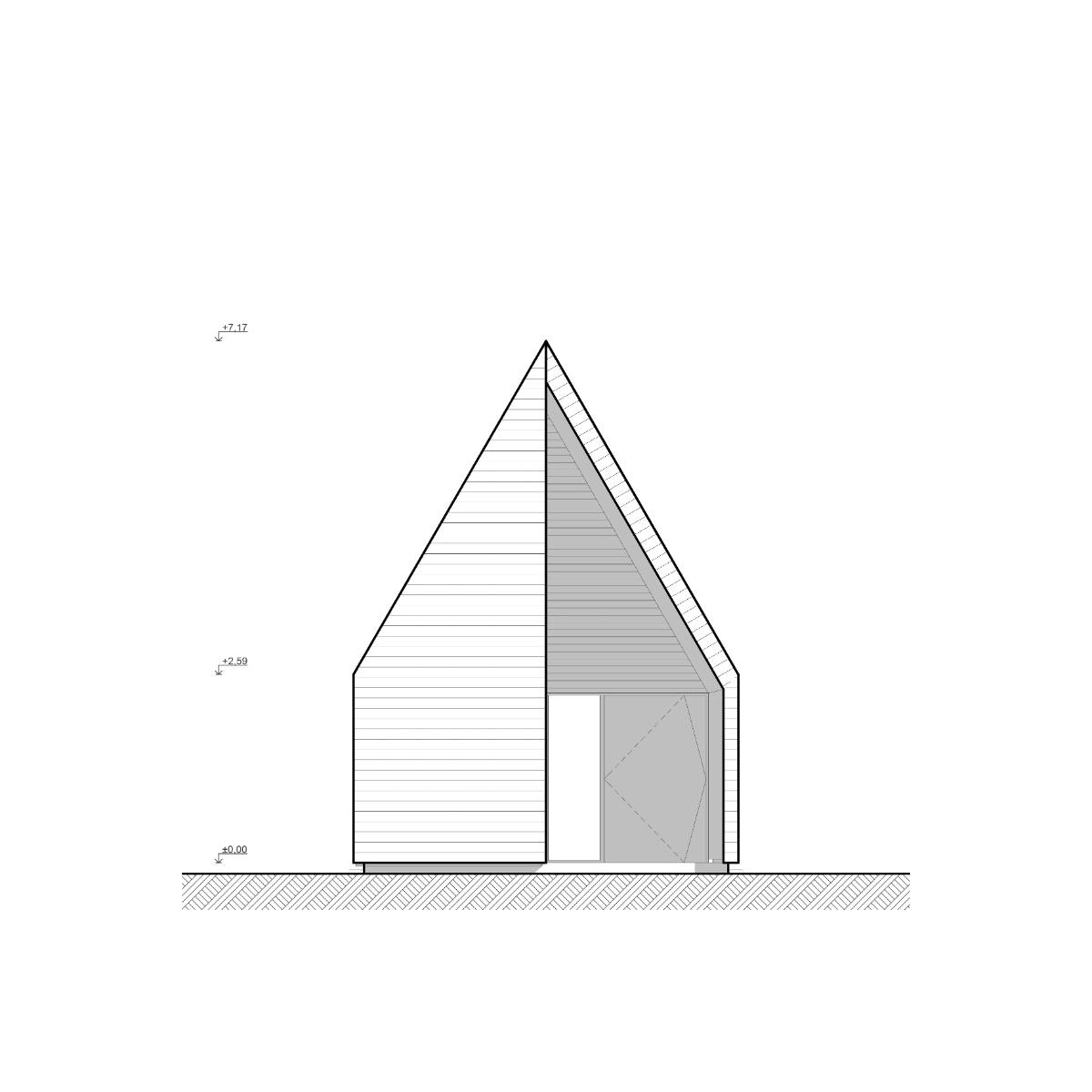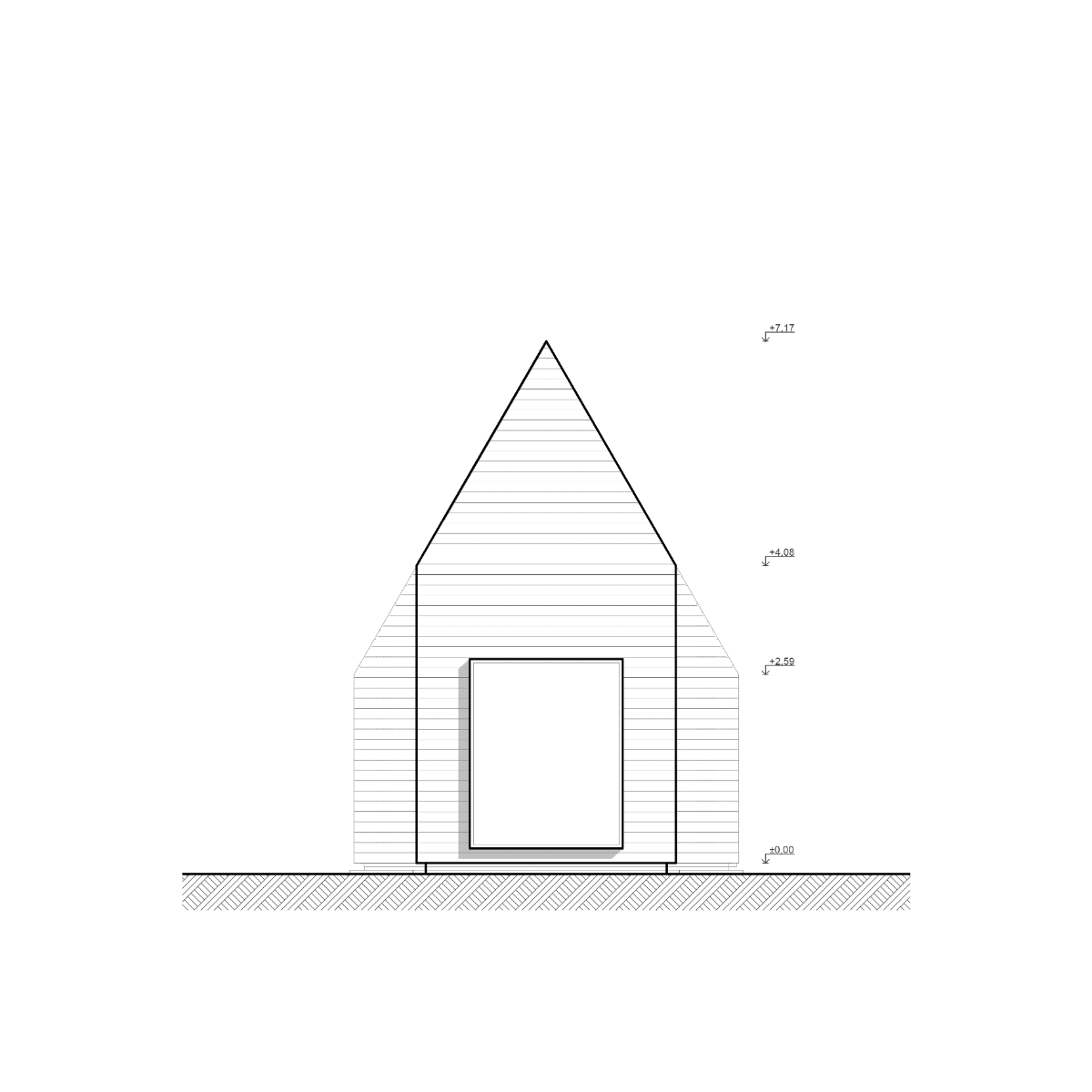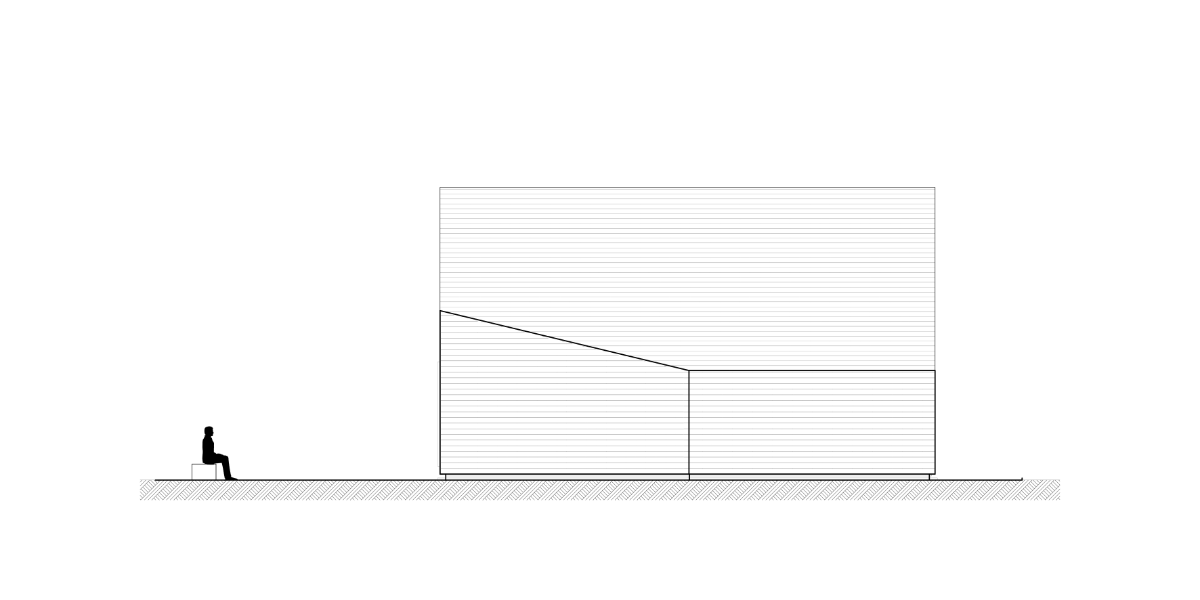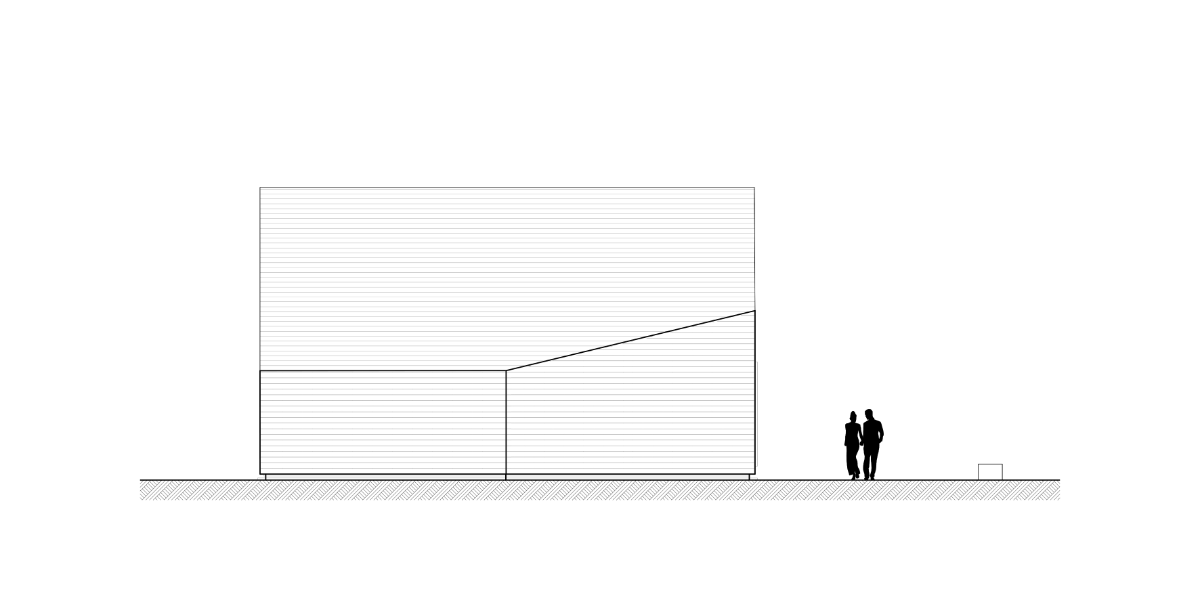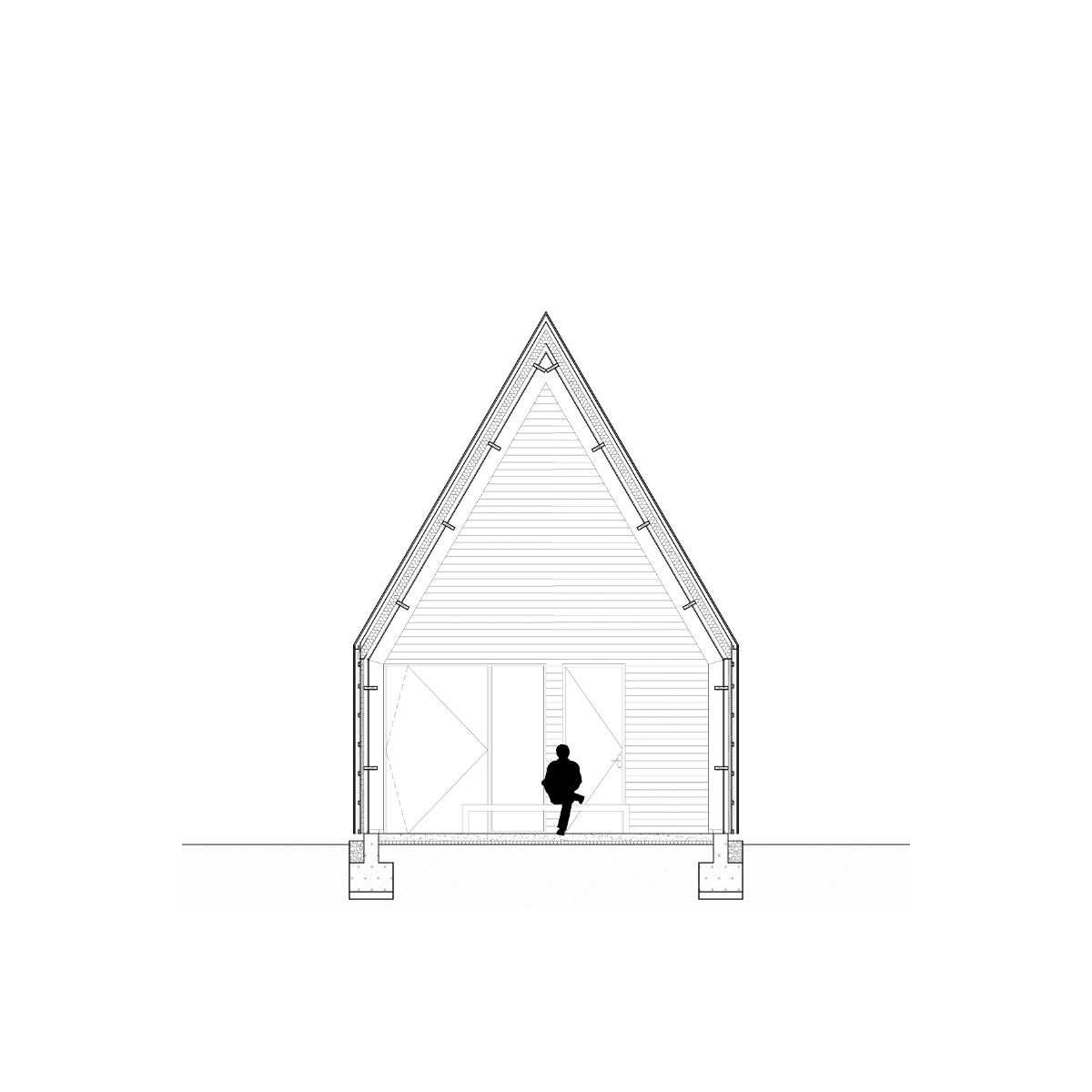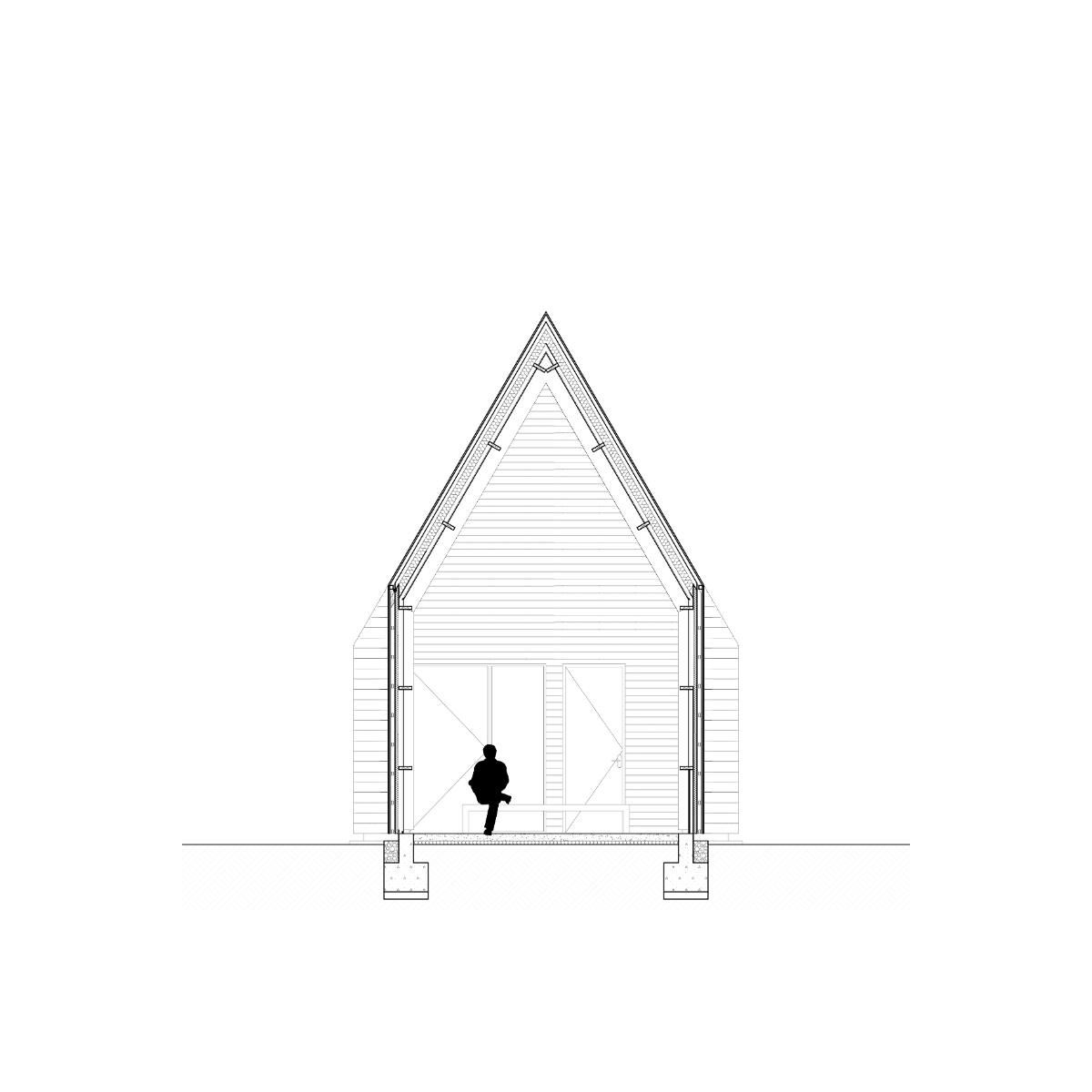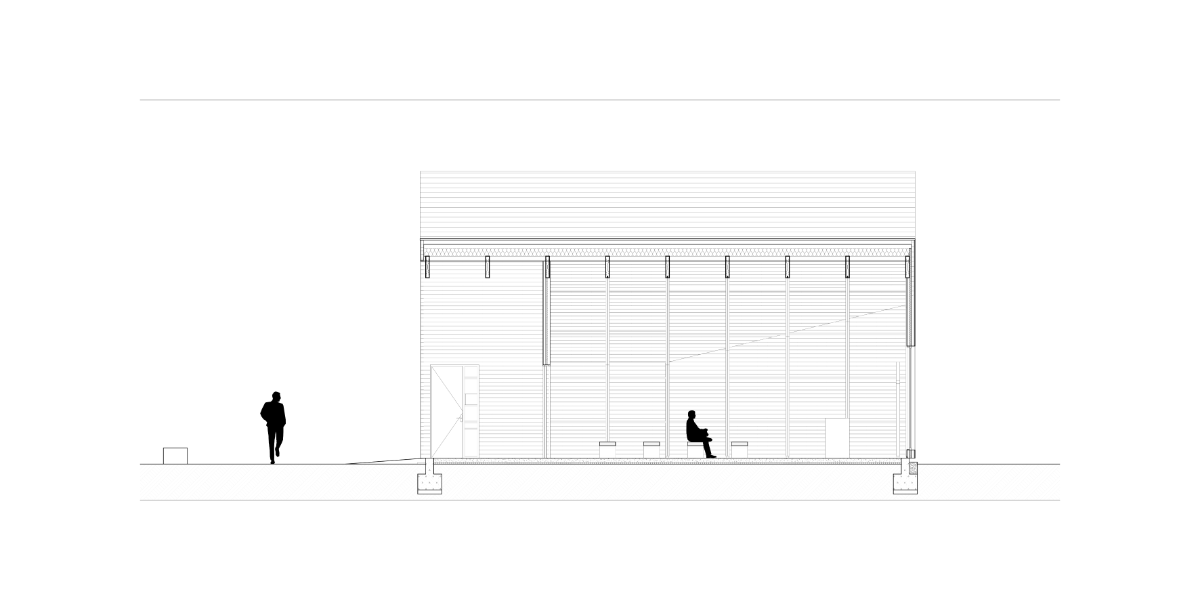The assignment consists of the construction of a place of worship for the Corporación de Beneficencia de Osorno (Clínica Alemana Osorno). This institution was created in the middle of the 20th century by citizens mostly of German descent and with the active support of the Lutheran Church. Thus, the creation of a new Lutheran Temple, a place of prayer and reflection for the clinic’s facilities, but of an ecumenical nature, becomes important.
The project is located in one of the inner courtyards of the clinic, in order to constitute “a nucleus” in the empty space between the existing facilities.
As there are no major typological references of Lutheran temples, the project is intended as a simple and austere concept that revives predominant typologies of this part of southern Chile. Seeks the use of wood as a main material, both in its structure and its coatings, a material present in the collective unconscious, which through its warmth enhances the experience of reflection and recollection.
The project is developed in only 55m2 with a rectangular floor plan that is “truncated” in the middle of its length, in order to emphasize the space towards the altar, while the shoulders rise increasing the sense of height on the altar, decreasing the width of the aisle. The altar and the cross are framed by the only opening of the project with the garden in the background, being the only entrance of light to the place of worship.
The relevance of wood in the design lies in the fact that it is the “unique element” of the architectural proposal, from its structure to its cladding. The structure, being exposed in its entirety to the interior of the chapel, is part of the architectural expression of the building, while in its role as cladding it provides a warm atmosphere and on the outside the wood blends in with its natural surroundings.
The project includes a structural solution based on engineered laminated wood. Due to its location in an interior courtyard, with no access for trucks or machinery, both the entry and assembly of the materials was completely manual. In addition, mechanization ensured a coordinated design, modeling and fabrication process, as well as easy pre-assembly of the structures.
Conceptual proposal
Wood was chosen for the project because it is an identifying material in the construction of temples in southern Chile. The idea is to use the material not only as a constructive element, but as an element that generates the connection between the built space, the visitor and the act of prayer or reflection.
We believe that the project successfully redefines a traditional construction system in southern Chile through the industrialization and mechanization of the material, without compromising its essence and formal expression

